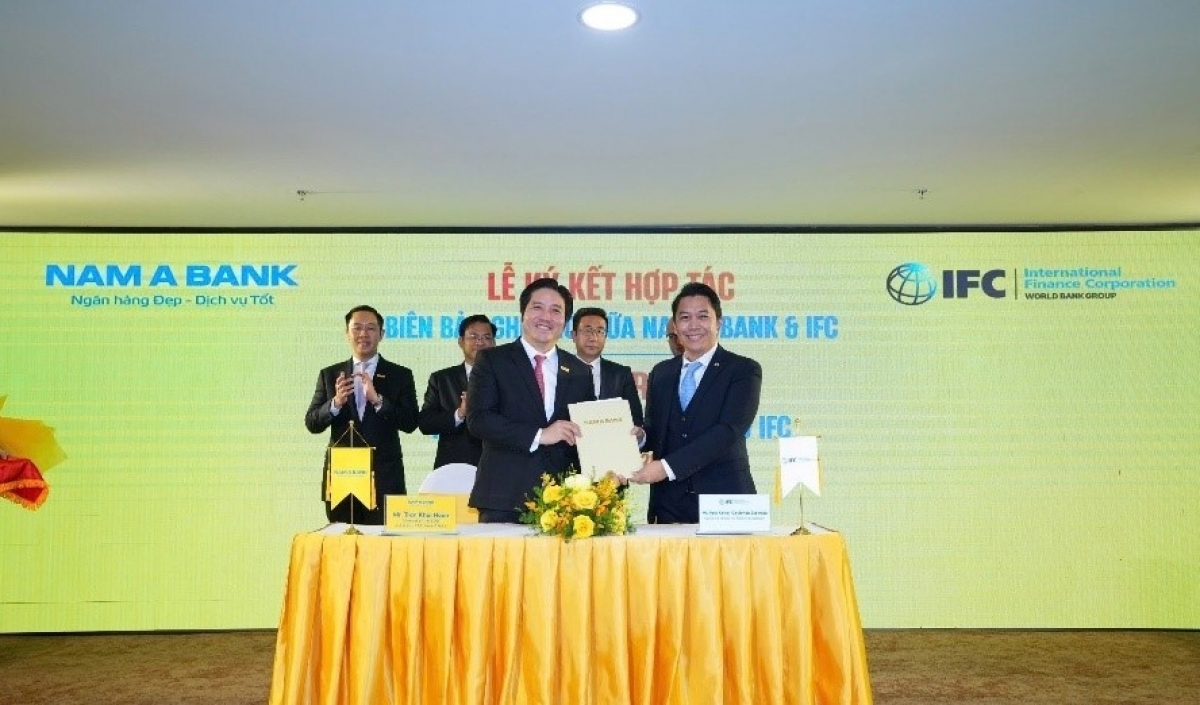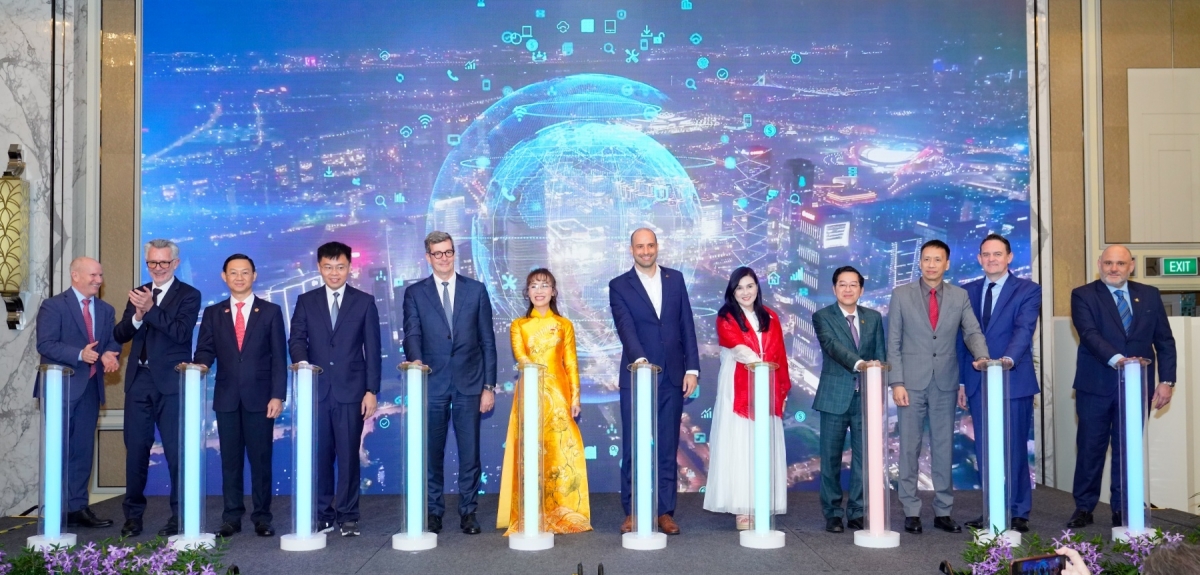INTERNATIONAL INVESTMENT
AND PORTAL
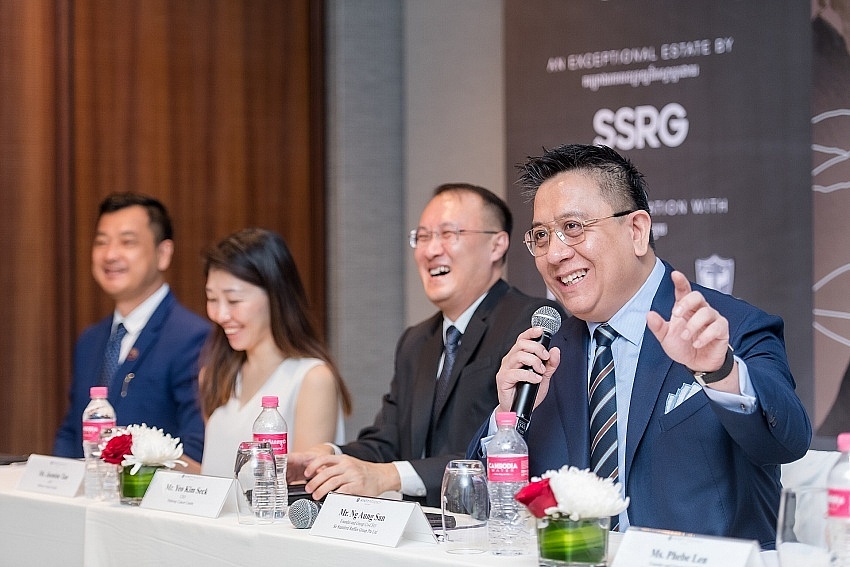 Ng Aung San, founder and co-CEO, SSRG What can you tell us about SSRG's first overseas project, the Marum Estate development in Cambodia?
Ng Aung San, founder and co-CEO, SSRG What can you tell us about SSRG's first overseas project, the Marum Estate development in Cambodia? We are delighted to have foreseen the potential of Cambodia's southern Kandal province, with its accompanying newly built infrastructure and factories relocated from Phnom Penh, where Marum Estate is located.
There we have developed a sprawling urban area of 22.6 hectares, equivalent to the size of 35 to 40 football fields. It is a suitable location for Cambodian residents and those from neighbouring countries, where they can live, raise the next generations to attend school, and grow.
The Cambodian government allows 100 per cent foreign investment in most sectors, which is a significant advantage that you don't always find in other countries, especially not in Indonesia or Vietnam.
The country has enjoyed political stability recently with the same party in power for a long time, similar to Singapore, where there have been smooth transitions within the ruling family. This stability is important as it ensures a predictable environment for conducting business. The current Cambodian government is even more business-friendly than before, implementing numerous open policies to encourage foreign investment that enhance the country's attractiveness as a potential investment destination.
Cambodia is just one and a half hours from Singapore, serving as a gateway to Laos, Myanmar, and Vietnam. With another hour of travel, you can cover the whole of Southeast Asia and a bit further. Unlike Laos, Cambodia is not landlocked, which is an advantage.
Economic growth is often cited as one of the primary reasons people are interested in Cambodia. The World Bank data from 2017-2019, before the COVID-19 pandemic outbreak, indicates that Cambodia experienced a relatively high average annual economic growth rate of 7.2 per cent. Cambodia's GDP per person is forecast to hit $2,071 in 2024, up from $1,917 in 2023, according to the Ministry of Economy and Finance.
Have you ever thought about expanding into other countries, such as Vietnam?I have a few years' experience working in Ho Chi Minh City within a different industry. While I wouldn't claim to be an expert, I believe there are fundamental similarities between emerging markets like Cambodia and Vietnam, though Vietnam is further ahead in its development. Vietnam's GDP per person is significantly higher, and its population is five to six times larger, indicating a more mature and advanced market.
During my time there, I travelled the country extensively, and I noticed considerable differences in the pace of progress between Phnom Penh and Ho Chi Minh City. Although Cambodia has made significant strides, Vietnam has continued to advance further.
There are key principles for achieving business success in both Cambodia and Vietnam. Both are certainly growth markets, however, the market in Vietnam is more competitive due to its cosmopolitan nature and the presence of many international firms.
Our goal is growth, innovating instead of repeating strategies. Our vision includes applying a centralised product-linking strategy along with satellite services and products, and possibly expanding into other real estate areas. Vietnam is certainly on our expansion list. I've observed many similarities between our projects and developments in Vietnam. We will soon begin researching feasibility plans and seeking suitable business partners because Vietnam is a market with great potential.
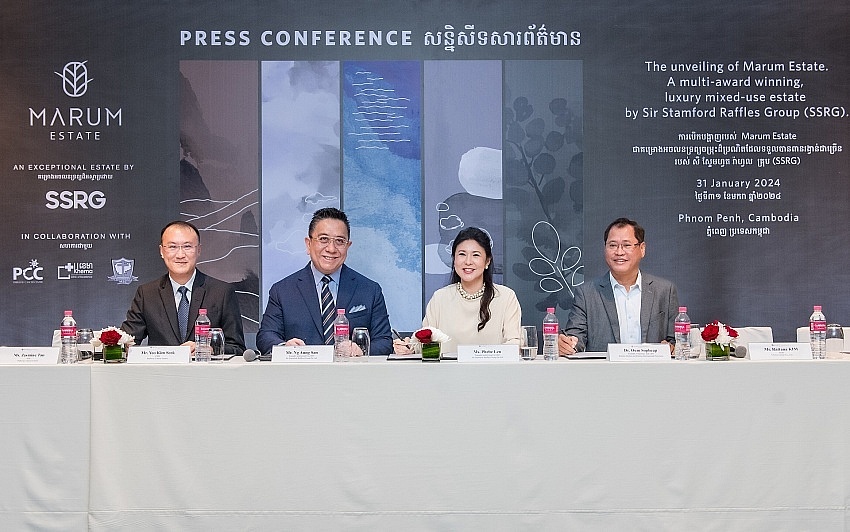
The residential real estate market in the region is showing significant flexibility. Most markets are performing better than expected and experiencing much smaller price adjustments than forecasted. We anticipate market conditions to continue improving in 2024. However, with the economy not showing signs of full recovery, buyers may choose properties with stable, reasonable prices while still providing the necessary amenities. For instance, with Marum Estate, the average price of around $300,000 is considered suitable, given the commercial, entertainment, healthcare, and educational services, along with the long-term sustainable value it offers.
Branded residences are an increasingly popular trend in the Asia-Pacific real estate market and has garnered strong interest due to the diverse amenities and the credibility of renowned brands. According to Knight Frank's 2023 Branded Residences report, almost 40 per cent of international property buyers are willing to pay extra for a reputable branded residential community. In Asia, this figure rises to 43 per cent. Beyond trust, the main drivers of this trend include premium services and amenities, encompassing personalised services, shopping malls, and fine dining. The high potential returns of these projects, coupled with efficient asset management and maintenance, also contribute to this ongoing trend.
Current trends in Southeast Asia, especially in the middle to upper-middle and luxury real estate markets, emphasise the importance of connectivity. Many home buyers are influenced by the pandemic's shift towards remote work, prioritising strong broadband and internet connectivity. Statistics indicate that internet penetration in the region is as high as 70 per cent in most countries. Marum Estate homeowners will have access to multiple internet service providers, reflecting this key trend in the real estate market.
What policies should Southeast Asian governments develop to encourage the development of high-end real estate projects?I believe investors will perceive a country as having more potential for business expansion if administrative procedures are reasonably organised. Governments should outline the nation's development process clearly and invest in the country's infrastructure, along main roads, beltways, and on secondary routes.
Additionally, there should be an equal playing field for both domestic and foreign businesses through transparent contracts protected by laws that provide safety and reliability for both the buyer and the seller.
To achieve these goals, robust, appropriate, and effective policy tools that ensure connectivity, safety, and certainty between capital markets and the real estate market are of utmost importance.
Harmonising, rationalising, and effectively combining fiscal and monetary policies, and improving the business environment by issuing competitive incentives for investors will be key factors in enticing major real estate enterprises in the region.
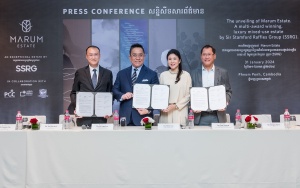 SSRG unveils Marum Estate in anticipation of Cambodia's economic surge
SSRG unveils Marum Estate in anticipation of Cambodia's economic surge SSRG (Sir Stamford Raffles Group) - a leader in innovative real estate development, has just announced the soft launch of Marum Estate in Cambodia's Kandal to attract the attention of buyers in the Indochina area.




